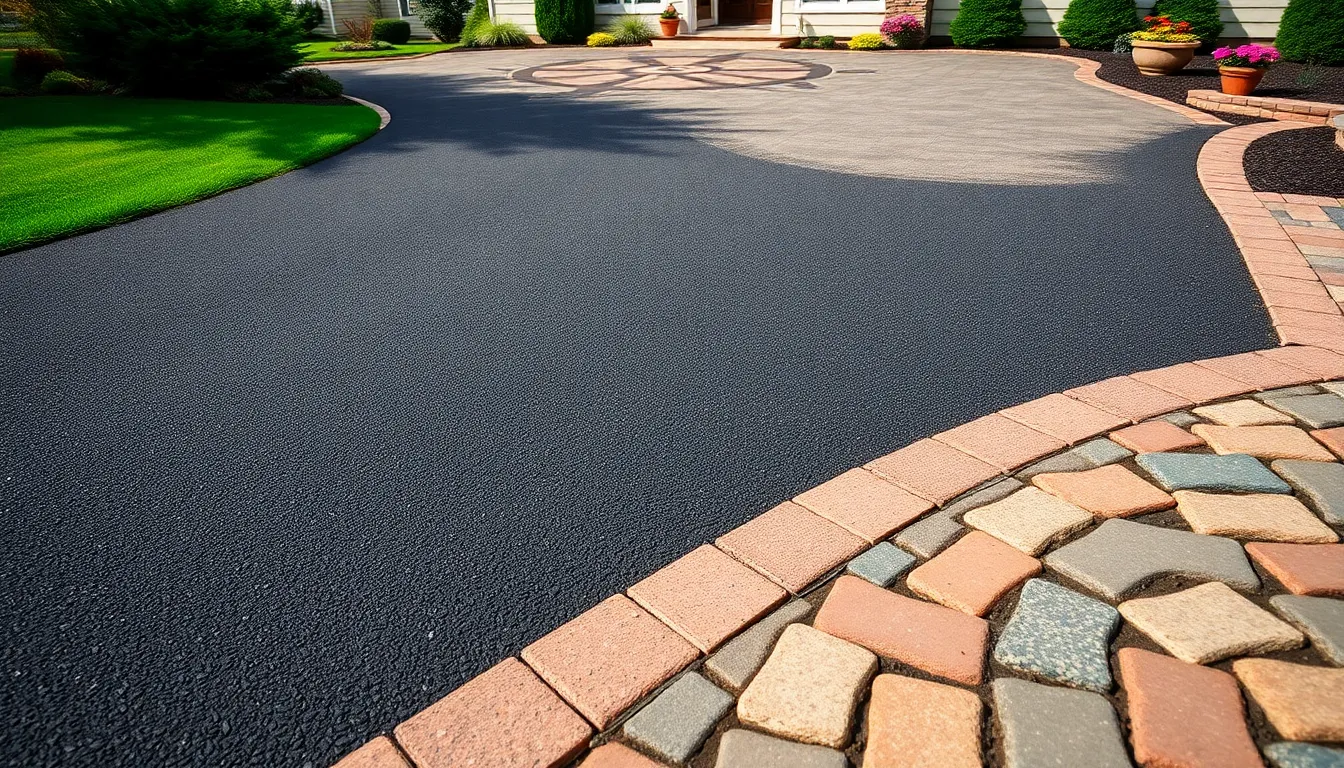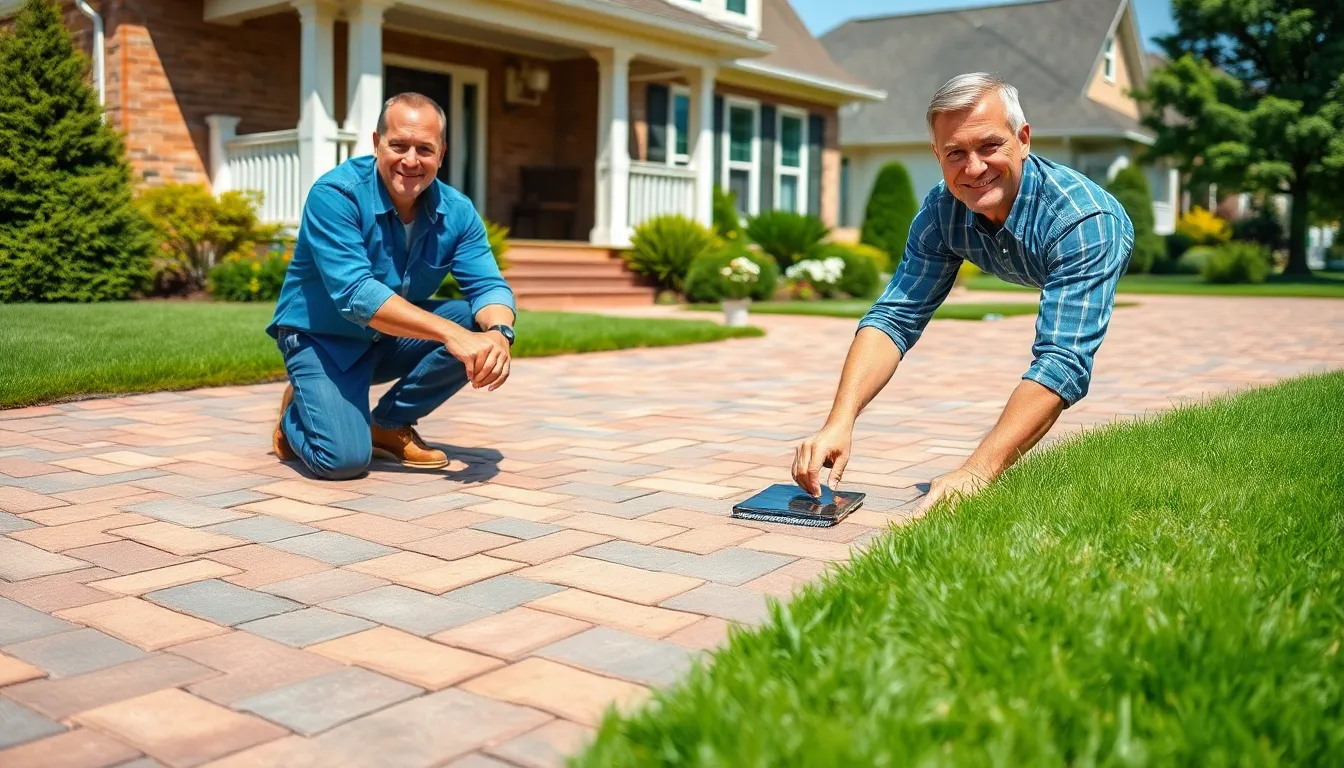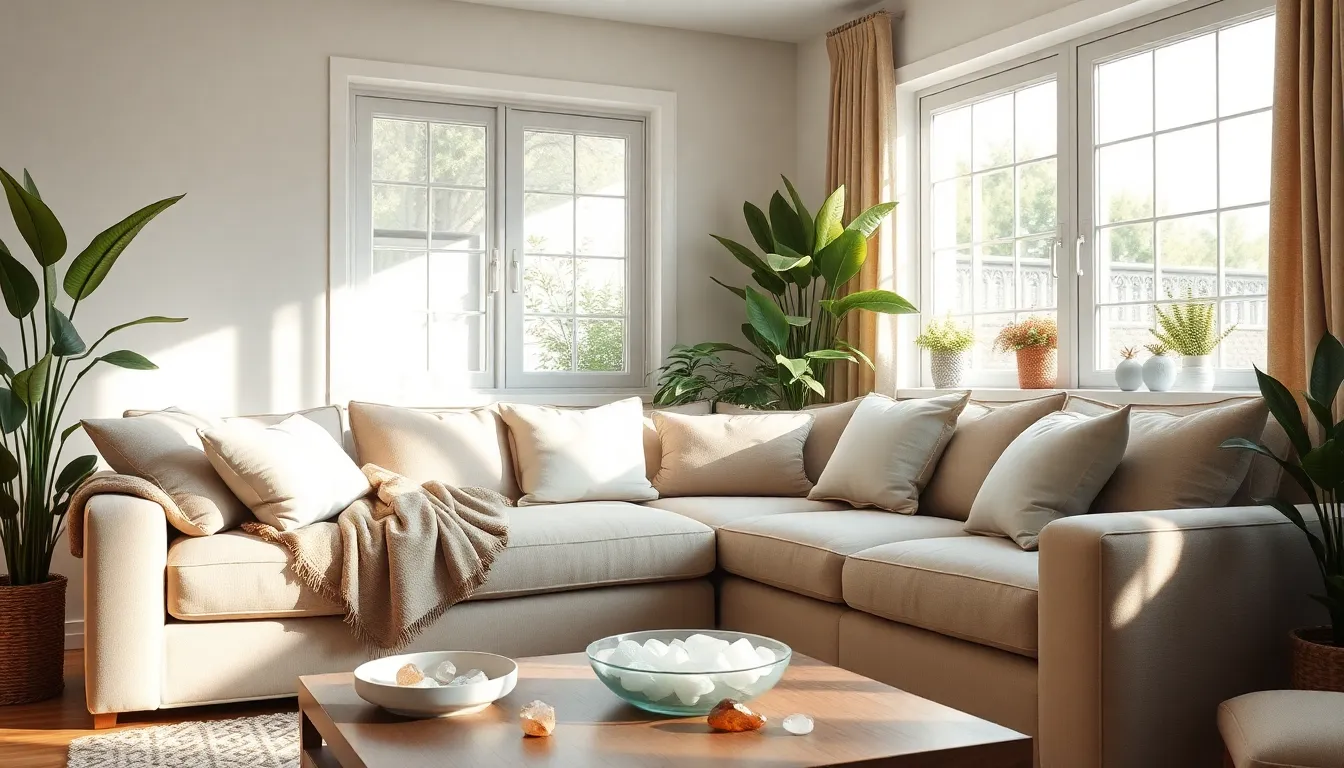A well-paved driveway not only enhances a home’s curb appeal but also provides functionality and durability. Homeowners often overlook the importance of driveway paving, yet it plays a crucial role in creating a welcoming entrance and ensuring safe vehicle access. With various materials and styles available, choosing the right option can significantly impact both aesthetics and maintenance.
Investing in quality driveway paving can save money in the long run by reducing repair costs and increasing property value. Whether opting for classic asphalt, elegant brick, or eco-friendly permeable options, understanding the benefits of each material is essential. This guide will explore the different types of driveway paving, helping homeowners make informed decisions that suit their needs and preferences.
Table of Contents
ToggleWhat Is Driveway Paving?
Driveway paving involves applying durable materials to create a solid surface for vehicle access. The process typically includes site preparation, base layer installation, and the application of the chosen paving material. It supports vehicles while enhancing the aesthetic appeal of residential properties.
Common materials used in driveway paving include:
- Asphalt: Known for its cost-effectiveness and quick installation.
- Concrete: Offers longevity and a range of design options.
- Brick: Provides a classic look, though it requires more maintenance.
- Permeable Pavers: Allows water drainage, reducing runoff and promoting sustainability.
Choosing the right material impacts both the driveway’s appearance and its longevity. Properly paved driveways can increase property value, improve safety, and minimize repair needs over time. Homeowners often consider factors like climate, usage, and style preferences when selecting the best paving solution.
Types Of Driveway Paving Materials

Several materials serve as effective options for driveway paving, each offering unique advantages in terms of cost, durability, and aesthetics. Homeowners can select from asphalt, concrete, and pavers to suit their specific needs.
Asphalt
Asphalt provides a cost-effective solution, with installation costs averaging $3 to $5 per square foot. It features a smooth, black surface, enhancing curb appeal while being quick to install. Asphalt’s flexibility allows it to withstand varying temperatures and heavy loads, making it suitable for high-traffic areas. Regular maintenance, including sealcoating every 2 to 3 years, extends its lifespan, which typically ranges from 15 to 20 years.
Concrete
Concrete presents a long-lasting option, often lasting up to 30 years or more with proper care. The installation cost ranges from $4 to $8 per square foot. Its appeal lies in the wide variety of finishes and decorative options, including stamped, stained, or tinted surfaces. Concrete requires less frequent maintenance compared to asphalt. However, it may crack under extreme temperatures or heavy pressure. Proper installation and using reinforcement can mitigate these concerns.
Pavers
Pavers consist of individual blocks made from materials such as brick, stone, or concrete. These blocks create a visually appealing surface, often featuring intricate patterns or designs. Installation costs for pavers typically range from $10 to $20 per square foot. Pavers allow for easy repairs—damaged blocks can be replaced without disrupting the entire surface. The permeable nature of some pavers promotes water drainage, providing an environmentally friendly option. Their versatility and aesthetic appeal make pavers a popular choice, despite higher initial costs.
Benefits Of Driveway Paving
Driveway paving offers numerous advantages that enhance both functionality and appearance. Homeowners often notice improvements in aesthetics, property value, and usability.
Aesthetic Appeal
A well-paved driveway boosts a home’s visual appeal, creating an inviting entrance. Various materials, such as asphalt, concrete, and pavers, provide design versatility. Asphalt presents a smooth, sleek finish, while concrete allows for decorative options, such as stamped patterns or colored surfaces. Pavers add charm with their unique arrangements and colors. Choosing the right material ensures that the driveway complements the home’s architecture and landscaping.
Increased Property Value
Quality driveway paving significantly increases property value. Appraisers typically recognize well-maintained driveways as valuable assets. For instance, a property with a professionally paved driveway can see an increase in market value by up to 10%. This return on investment is substantial, especially in competitive real estate markets. Furthermore, a durable surface minimizes long-term repair costs, making property ownership financially advantageous.
Choosing The Right Driveway Paving
Selecting the appropriate driveway paving involves evaluating several factors, including cost and maintenance. Understanding these aspects ensures homeowners make informed decisions that align with their needs and preferences.
Cost Considerations
Cost significantly influences driveway paving choices. Prices for various materials differ, impacting overall project budgets. Below is a table summarizing average installation costs per square foot for common driveway paving materials:
| Material | Average Cost (per sq. ft.) |
|---|---|
| Asphalt | $3 to $5 |
| Concrete | $4 to $8 |
| Pavers | $10 to $20 |
Asphalt remains the most cost-effective option, ideal for those needing quick and budget-friendly solutions. Concrete, while pricier, offers durability and aesthetic versatility, making it a popular choice for long-term investments. Pavers provide unique design elements but come with the highest installation costs, appealing to homeowners prioritizing visual appeal.
Maintenance Requirements
Maintenance needs vary by paving material, affecting long-term value. Asphalt necessitates sealing every 3 to 5 years to prolong its lifespan and maintain appearance. Concrete requires less frequent attention but may need crack sealing and occasional resurfacing to prevent deterioration. Pavers demand regular maintenance, including re-leveling and joint sand replacement, to ensure stability and attractiveness.
Homeowners should evaluate their willingness to commit time and resources to maintenance. Choosing a material aligning with their preferences ensures satisfaction and enhances the longevity of the driveway.
Installation Process
The driveway paving installation process includes several key steps to ensure a durable and functional surface.
- Site Preparation: Clearing the area of debris, vegetation, and existing surfaces sets the foundation for proper installation. This step involves grading the site to create a level base for the driveway’s material.
- Base Layer Installation: A solid base layer consists of crushed stone or gravel, providing stability and effective drainage. Typically, a thickness of 4 to 6 inches is used, compacted thoroughly to prevent settling.
- Material Application: Applying the chosen paving material follows the preparation and base installation. Each material has its specific procedures:
- Asphalt: Hot asphalt is poured and spread out evenly, followed by compaction using a roller.
- Concrete: A mixture of cement, water, and aggregates is poured into forms, smoothed, and finished.
- Pavers: Individual pavers are laid in the desired pattern on a bed of sand and secured with additional sand filling the joints.
- Finishing Touches: After installation, finishing processes include sealing asphalt for added longevity, applying a curing compound to concrete, or sweeping joint sand into paver gaps. These touches enhance the aesthetics and prolong the material’s lifespan.
- Curing and Settling: Newly paved driveways require time to cure properly. Asphalt typically sets within 24 hours, while concrete can take up to 28 days to reach full strength.
Proper attention to each step ensures a lasting driveway that meets both aesthetic and functional expectations.
Investing in driveway paving is a smart choice for homeowners looking to enhance both the beauty and functionality of their property. With a variety of materials available each offering distinct advantages homeowners can tailor their choices to fit their specific needs and preferences. A well-paved driveway not only boosts curb appeal but also provides long-term savings by minimizing repair costs and enhancing property value.
By considering factors like cost maintenance and aesthetic appeal homeowners can make informed decisions that lead to a durable and attractive driveway. Ultimately a quality paving job creates a welcoming entrance that stands the test of time while ensuring safe access for vehicles.



